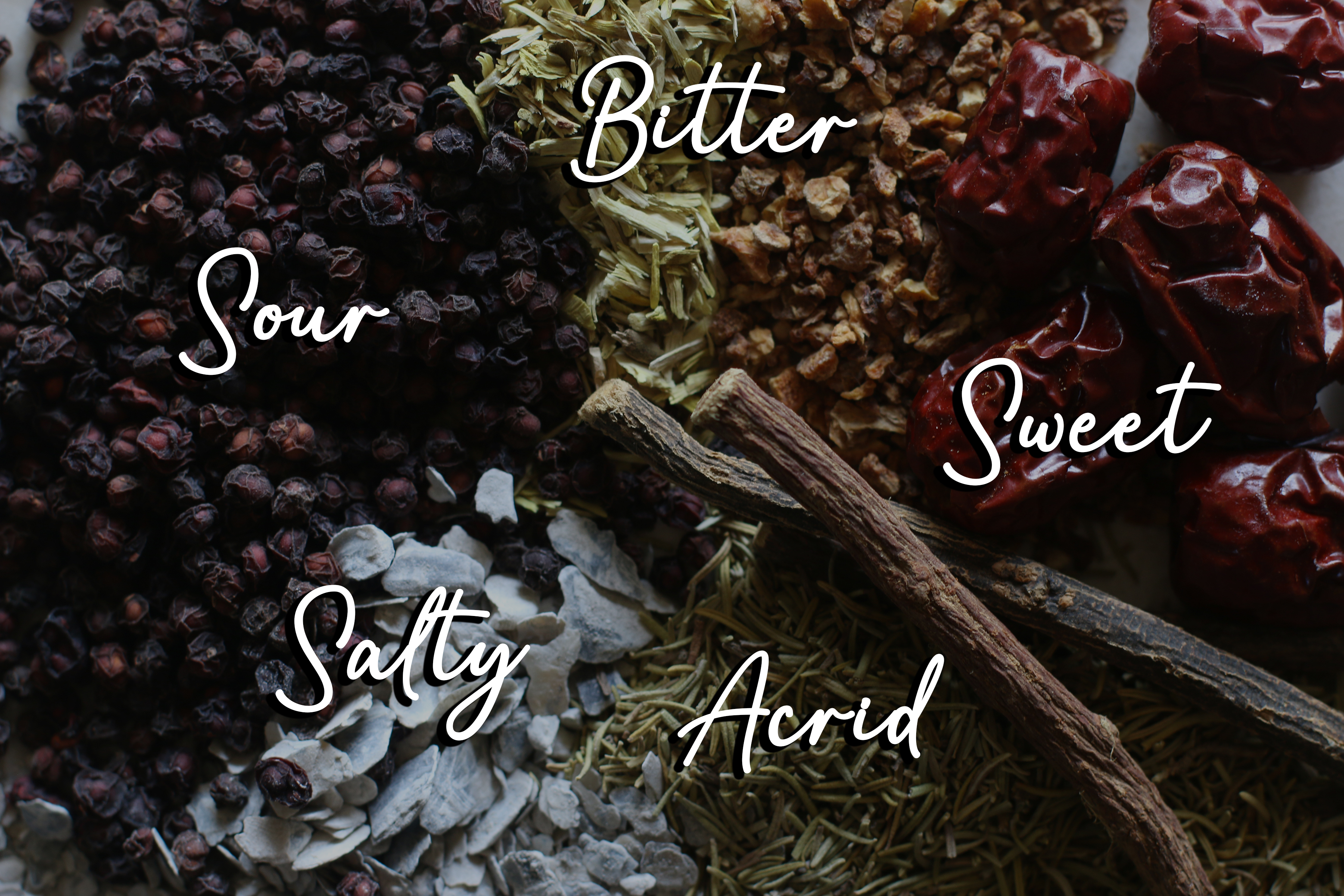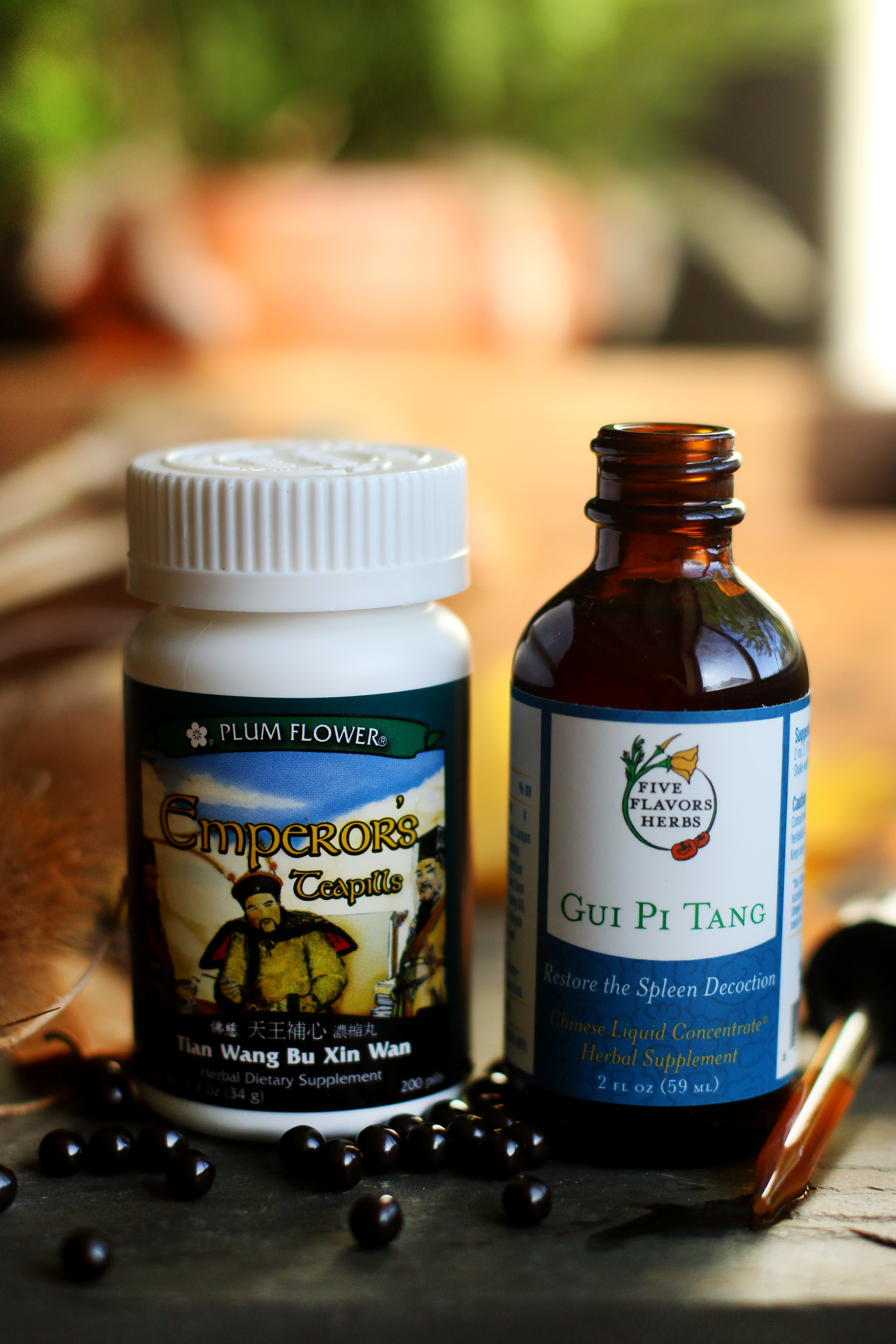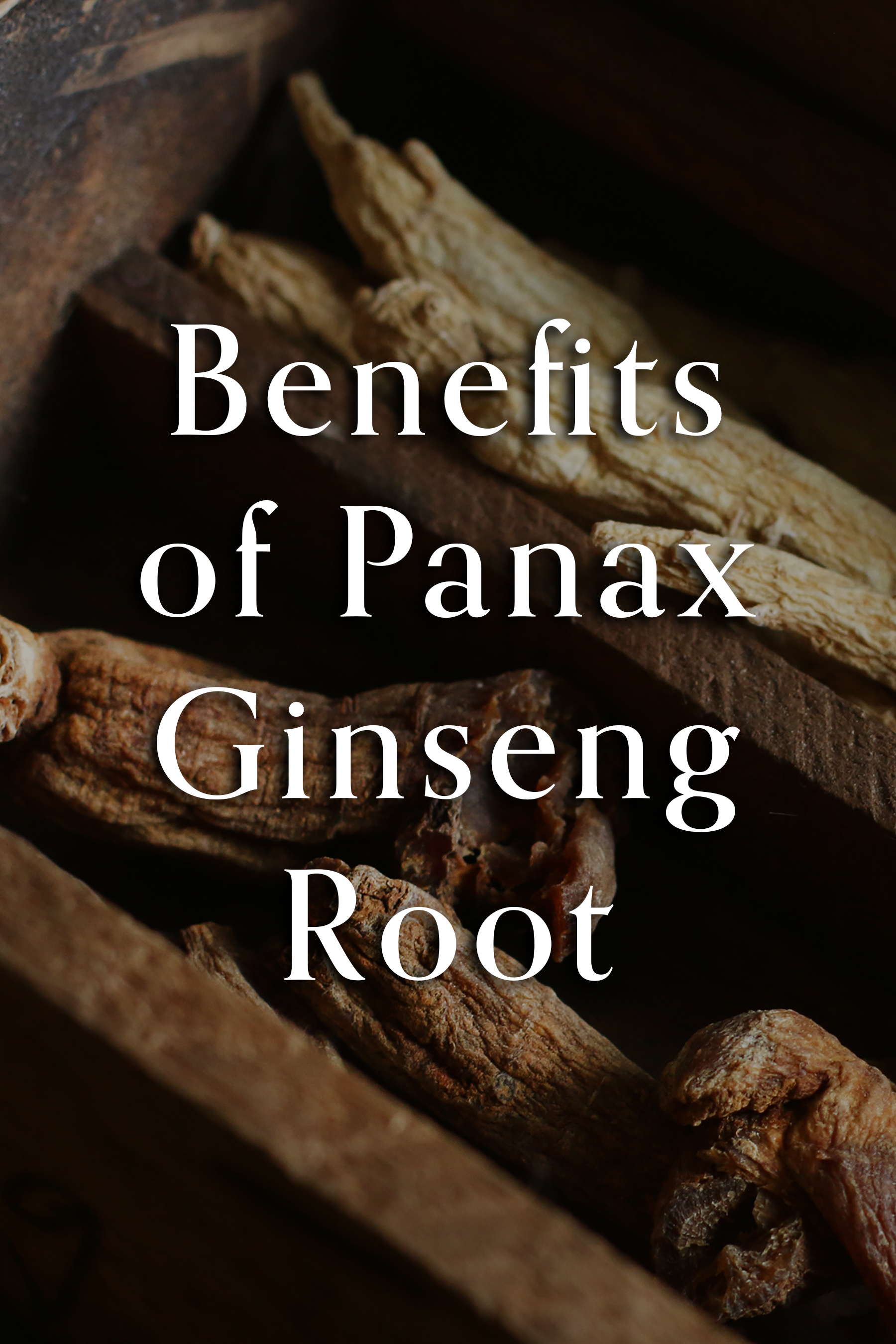Panax ginseng is among the traditional Asian herbs that has broken into the mainstream Western supplement lineup, and it’s easily found health food stores, from practitioners, online, or even in sweetened vials of liquid at a truck stop—not surprising since Americans often use it with the intention of revving up their engine or pushing down the road a few more miles. Many Western herbal products incorporate ginseng for improving sexual and athletic performance. While ginseng can certainly help maintain our energy levels, its traditional actions include supplementing the qi (vital energy) and nourishing the Blood while simultaneously calming the mind and spirit. All of these herbal actions give it the remarkable ability to function as an adaptogen, nervine, and nootropic simultaneously.
Adaptogens, nervines, and nootropics have gained popularity for supporting energy, reducing stress, and promoting mental clarity. While I’m enthusiastic about new research and aspire to keep up with contemporary dialogue on new treatment modalities, I like to compare and integrate these new perspectives with the Western and East Asian herbal traditions that I study and practice. When I do, I often find that a modern scientific “revelation” has been anticipated by the wisdom of the past, as in the case of Panax ginseng. To comprehend how ginseng can impact the body in so many ways, it is helpful to understand its actions and indications according to Traditional Chinese Medicine (TCM).
Herbal Actions in Traditional Chinese Medicine
TCM herbalists must know the actions and indications of herbs in order to integrate them into their understanding of the tools they wield. Actions may use technical jargon, but they may also clearly describe the therapeutic goal of the botanical, so I regularly share them with patients and non-practitioners seeking to better understand an herb’s role within TCM principles.
TCM uses a unique code for every herb or medicinal substance. “Flavor” refers to a general action, and “temperature” refers to the thermogenic action of the herb on the body. The “meridians” represent channels that traverse the terrain of the body and carry energy to and from the different organs, influencing their associated physiological functions in the process.
In TCM, ginseng is associated with the flavor sweet and with a slightly warm temperature, and it is correlated with the Spleen, Lung, and Heart.

Panax Ginseng Benefits in Traditional Chinese Medicine
Powerfully reinforce yuan qi or source qi: Qi depicts the intersection of our inherited constitution, the energy derived from our breath, and the energy derived from our nutrition. It is the basis for all physiologic function. Ginseng optimizes the body's ability to work with and generate these facets of ourselves.
Tonify zang-organ qi: Ginseng boosts the vitality of the organs, in particular the Spleen, Lung, and Heart.
Promote the generation of body fluid to alleviate thirst: This action relates to not just hydration, but also to deeper levels of endocrine function. Thirst in TCM is often correlated with blood sugar dysregulation, and many herbs that share this action are indicated for supporting healthy blood sugar levels.
Calm the mind and support the intellect: These actions mean exactly this. Good quality Panax ginseng, properly prepared for the right person, will tranquilize the mind and allow for clear thinking.
Herbal Formulas Featuring Ginseng
Two TCM formulas containing ginseng that boost vitality, calm the mind, and aid in concentration include gui pi tang (Ginseng and Longan Combination) and tian wang bu xin dan (Heavenly Emperor’s Formula).
- Gui Pi Tang (Ginseng and Longan Combination): Ginseng, along with astragalus, are key herbs in gui pi tang and are powerful herbs for supplementing the qi of the Spleen. In TCM, the Spleen is responsible for the yi, which is translated in a variety of ways but which all emphasize intelligence, the ability to concentrate, and the ability to sustain focus. Depletion of the Spleen qi can result in forgetfulness and inability to concentrate; the formula may also benefit other signs, including palpitations (with or without anxiety), insomnia, dream-disturbed sleep, anxiety and fear, feverishness, withdrawal, reduced appetite, a pale complexion, and a pale tongue with a thin, white coating (stay tuned for a comprehensive discussion of this formula later this month!). As with all herbal remedies, use only under the direction of qualified health care practitioner.
- Tian Wang Bu Xin Dan (Heavenly Emperor's Formula): Ginseng and the fluid-nourishing herb Rehmannia are the chief herbs of this important restorative formula. Used for calming the spirit, nourishing the fluids, tonifying the heart, and rejuvenating the mind, it is commonly used by students across Asia when they need to study intensely for an exam. This formula is indicated for fatigue, irritability, palpitations with restless thinking, inability to concentrate for even short periods of time, forgetfulness, and a red tongue with little coating. As with all herbal remedies, use only under the direction of qualified health care practitioner.
Ginseng as Part of Cleansing & Restorative Protocol
If you’ve looked around herb shops in Chinatown or visited Asia, you may have seen boxes of ornately displayed ginseng roots being offered for sale at exorbitant prices—potentially upwards of $20,000. Some of these roots are the Panax ginseng that we’ve been discussing, and some are American ginseng (Panax quinquefolium), which grows wild and is cultivated in the U.S. Both hold particularly high value as tonic herbs. Gift giving is a large part of Chinese culture and it is common, particularly in business culture, to give ginseng roots to esteemed colleagues and trading partners to demonstrate respect and appreciation. Once ginseng gifts are shared, they are not to be left on a shelf or on the wall, but to be consumed in order to promote longevity and vitality.
However, in order to derive optimal value from these high-value ginseng roots, one ought to do some period of intentional cleansing and fasting to prepare the body to receive it. When I’ve done this, I believe it has allowed me to best perceive the potency of the ginseng I was consuming, and also better integrate it into my system for sustained benefit.
There are many ways to cleanse or fast. The myriad methods and for whom they are appropriate is a lengthy topic, beyond the scope of this blog post. That said, the two most common methods of cleansing that I recommend to patients are variations on a proteinaceous anti-inflammatory diet (a.k.a. a legume and cooked whole-grain fast). I base these recommendations on my perception of an individual’s needs along with the intersection of their goals and dietary values and preferences. Duration and frequency of such intentional cleansing ought to reflect the health goals and health status of the individual and is best conducted with a qualified healthcare professional.
Regardless of the delivery system and price tag of the ginseng you consume, taking time to cleanse will help your body rejuvenate and build its vitality. This is also a useful consideration for exploring other adaptogens and nootropics, because it gives you an opportunity to reflect on and experience whether the herb is truly what you need. I too often see people investing in expensive supplements to override fatigue and depletion. For some, this can be potentially harmful. For others, all they may need to access the energy they perceive themselves to be lacking is an intentional cleanse to purge their system of allergens and toxins. Cleaning up the diet may be sufficient for them to experience a stable mood, better concentration, and the level of vitality they’re seeking—with or without adaptogens, nervines, and nootropics.
Pharmacology and Safety of Ginseng
As with any herbal supplement, it’s important to be aware of the interactions it may have with other medications and your particular constitution. The primary active compounds in ginseng are ginsenosides, which are absorbed in the digestive tract and metabolized by the liver. No carcinogenic activity has been identified, and ginseng is generally considered safe when consumed in traditional quantities as a tea or extract. In-vitro and animal studies of ginseng extracts have shown antiplatelet and anticoagulant effects, so caution is recommended in individuals with coagulation disorders or those taking blood-thinning medications. Contrary to its popular understanding as a stimulant that could theoretically raise blood pressure, ginseng has been shown to lower blood pressure, and caution is recommended if combining it with blood pressure medications. Similarly, be careful if combining ginseng with diabetes medication, as it has been shown to lower blood sugar levels. It is also advised to avoid combining ginseng with MAOIs, estrogen therapy, corticosteroids, or immunomodulating drugs. Avoid ginseng during pregnancy and lactation. The bottom line is: if you are pregnant, breastfeeding, or take medications for depression, heart problems, or diabetes, ask your doctor before consuming ginseng.
(Citations: Mancuso, Cesare, and Rosaria Santangelo. “Panax ginseng and Panax quinquefolius: From pharmacology to toxicology.” )
WANT TO TRY PANAX GINSENG?
TRY GUI PI TANG EXTRACT
You might also enjoy:
- Lung Support Oxymel Recipe
- Epic Bone Broth Recipes & Insights
- Yu Ping Feng San Recipes for Respiratory & Immune Support
Written by Benjamin Zappin, L.Ac. Five Flavors Herbs co-founder Benjamin Zappin is one of the Bay Area's most respected and knowledgeable herbalists and a licensed acupuncturist. With over 20 years of experience, Benjamin synthesizes his deep knowledge of Chinese and western herbal medicine with modern medical perspectives to create effective herbal formulas and treat patients. He serves patients through Paeonia Integrative Medicine.



